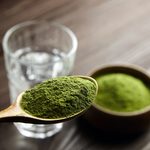Egg Secrets
Get familiar with this scrumptious staple. This is what you’ve gotta know about buying, cooking, and storing eggs.
Buy Organic Eggs
Of course, organic eggs are slightly more expensive than regular eggs, but we wouldn’t be telling you to buy them unless they were better for you. The reason is they are much higher in the all-important omega-3 fatty acids, which have been shown to benefit everything from your mental health (by reducing the risk of depression) to your heart health (by reducing the risk of atherosclerosis and atrial fibrillation).
There’s More Than One Way To Boil An Egg
The Control Freak’s Method
Bring the water to a boil and then place the eggs carefully into it. Cover the pan, and when the water returns to a boil, set the timer for 3 minutes for soft-boiled eggs or 13 minutes for hard-boiled. When the timer goes off, remove the pan from the stove and drain off the water. You’ll probably be eating the soft-boiled egg immediately, but if you intend to refrigerate the hard-boiled ones, first run cold water over the eggs until they’re no longer hot. (That will also make them easier to peel.)
Laissez-Faire
The easygoing method doesn’t require a timer. Start by putting the eggs in the pan and covering them with cold water. Put the pan on a burner over high heat, and cook just until the water comes to a boil. Turn off the heat immediately and leave the eggs in the hot water, covered. After 20 minutes the eggs will be hard-boiled to the same degree as they are following 13 minutes of constant cooking.
There’s nothing sacred about the 20-minute requirement; that’s merely the minimum. You can let them sit in the water much longer, although eventually the whites will become a little rubbery and a greenish ring will form around the yolk. (It’s harmless, but some people find it unsightly.) Eggs will be soft-boiled under this method after sitting in the hot water for 5 minutes.
Prick Eggs To Make Them Peel Easily
It’s well known in Europe but not so well known in North America: Pricking eggs before boiling them makes them easier to peel. In Europe they even sell little gizmos for piercing the eggshell, but you don’t need one of those. Just take a pin and insert it about half an inch into the fat end of the egg. That lets in enough air to break the seal between the membrane and the egg white it wants to cling to.
Other egg tips: Older eggs peel easier than fresh eggs. If you’re making egg salad and won’t be serving the eggs intact, don’t peel them at all. After you’ve boiled and cooled them, crack them open and scoop out the egg. You’re going to mash it up anyway, so why bother with all that peeling? If, on the other hand, you’re planning on making deviled eggs or slices for a garnish, you do want perfect eggs.
Freeze Leftover Egg Whites Individually
How many times have you used a few egg yolks, then stored the leftover whites all together in the fridge—only to forget about them? Later, you come upon the container and can’t remember how many whites are in it or when you put them there. So you toss it out.
Here’s a better way: Put each white into one compartment of a clean ice cube tray and freeze them. Then remove the cubes from the tray and store them in a plastic zipper bag. It’s obvious how many there are, and you can thaw them overnight in the refrigerator before using them. To lighten an omelette, add several whites to the whole eggs you use. You can even use them for angel food cake, but they won’t beat up to quite as much volume as fresh ones.



